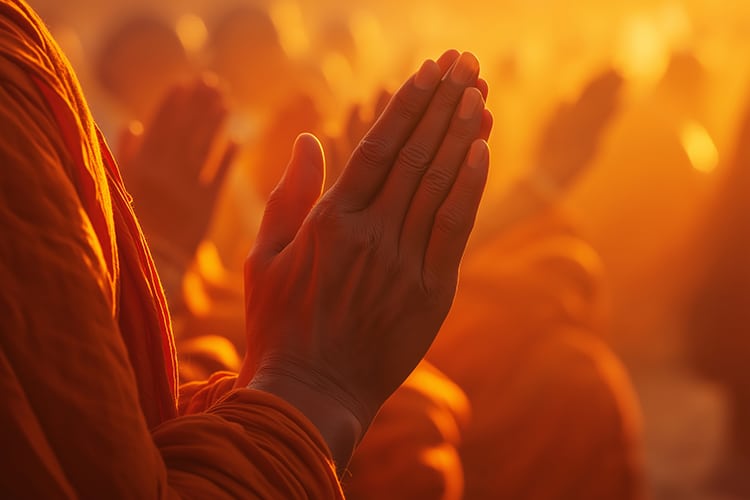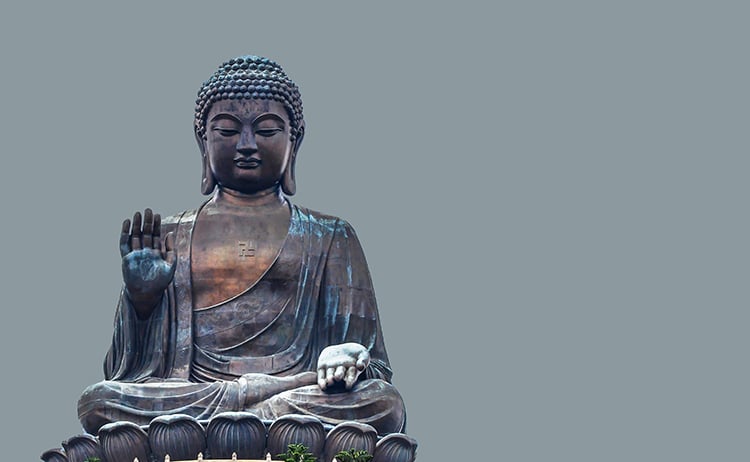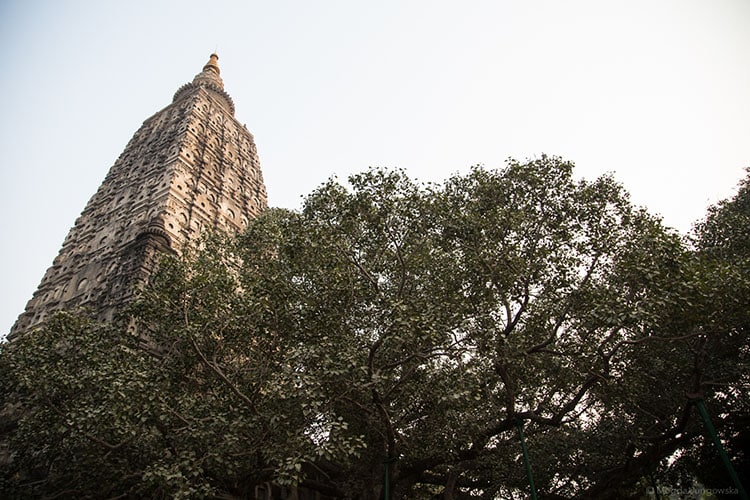The Practical Application of the Bodhisattva Vow
Category: Buddhist Path | Mind Trainer Articles | Recent Meditation Posts

Reminding ourselves that we’re on the path
The bodhisattva vow is a commitment to attain enlightenment, not just for myself, but for the benefit of all beings. The first part of this double goal is working towards attaining enlightenment, the ultimate state of freedom, rather than focusing on temporal pleasures and well-being. The second part is that I want this not just for me, but for all beings. Others come first. This altruistic commitment is reiterated every day, often as a formal practice. It’s something I do every morning after I wake up: I take refuge and develop bodhicitta, the bodhisattva aspiration, as the foundation of my meditation practice.
Reminding ourselves that we want to attain alignment for the benefit of all beings sets the intention for the day. On the Mahayana path, this altruistic motivation is central to our lives; it gives us a purpose. It’s a big purpose, I know. Sometimes it might seem overwhelming: how can I possibly help all sentient beings on the planet—or even beyond it? It’s too big a task. We need to remember that this is an aspiration. It replaces our usual mindset and way of functioning where we think small and concern ourselves with our own benefit.
With the bodhisattva vow, we’re transforming small thinking into big thinking. I want ultimate happiness, not only for me, but so that I can benefit all beings. We also remind ourselves of our commitment to fulfill this wish in our daily activities. In addition to an intention that I set in the morning as a formal practice, it is also useful during the day when I encounter a variety of situations in my everyday life. For example, when I’m having lunch I can remind myself of everything and everyone that was involved in my being able to eat and enjoy my meal. This brings me more awareness of how important others are and gives me an opportunity to remember that they want happiness too, and that my wish is to be able to help them achieve it. Everyone on this earth wants to be happy. We’re all doing all we can to bring it about, though not always in the most constructive ways.
The bodhisattva commitment is also useful in our interactions with others. When I’m dealing with a work colleague, for instance, and that person suddenly says something negative, if I don’t apply the bodhisattva vow, my reaction might be, “What a jackass!” I might distance myself from that person and start talking about them with others. But instead of doing that, I can stop and ask myself how I can apply bodhicitta in this situation. I remember that there are qualities I want to cultivate, like patience, generosity, and so on. How can I be patient with this person? This person wants happiness just like I do but maybe they think they need to compete with me to achieve it. Or maybe they simply think that I’m wrong. If I apply the bodhisattva vow, instead of reacting, I try to be patient; I try to put myself in the other’s shoes and imagine why they’re doing what they’re doing. They just want to be happy and don’t know how to get there.
Or suppose I’m in a traffic jam. A typical reaction might be to become upset and anxious as I worry about arriving late. But blaming the traffic jam just cultivates irritation and puts me in a bad mood. Instead of being upset, I can kindle the bodhisattva vow and wonder what the other drivers are going through—maybe they’re even more rushed than me because they’re on their way to a medical treatment. I can use this situation to renew my vow and develop bodhicitta by taking others into account and wishing them happiness and ease. Incorporating everyday difficulties on the path, making them part of our spiritual journey, is a very essential practice.
Of course, there are other difficulties that are more challenging than being stuck in a traffic jam, like when loved ones are ill. When confronted with these challenges, I always have the option of remembering my goal in life. I can ask myself how I can be of service to that person instead of being centered on my own feelings, likes, and dislikes. The focus shifts completely.
As the day goes by, from time to time it’s important to remember my bodhisattva vow. And at the end of the day, I can look back and ask myself, “How did I do? For sure there were moments where I was totally selfish and reactive, and yeah, that’s part of training. If I didn’t need to train I wouldn’t be here!” I can take stock and see that in one situation, I could remember to bring in the altruistic mindset, but in the other I couldn’t. Here it’s important to be self-compassionate and remember, “Okay, I’m learning. And I resolve to do my best in the future.”
From the moment we wake up until the time we go back to sleep, we need reminders. We don’t need special situations to practice the bodhisattva vow; any situation can be a good one. It’s completely within our reach, as long as we remember to renew it again and again, to recommit again and again. We’re not perfect, we’re training, and bodhicitta is our direction and the focus of our deepest aspiration. Bodhicitta is the path.







